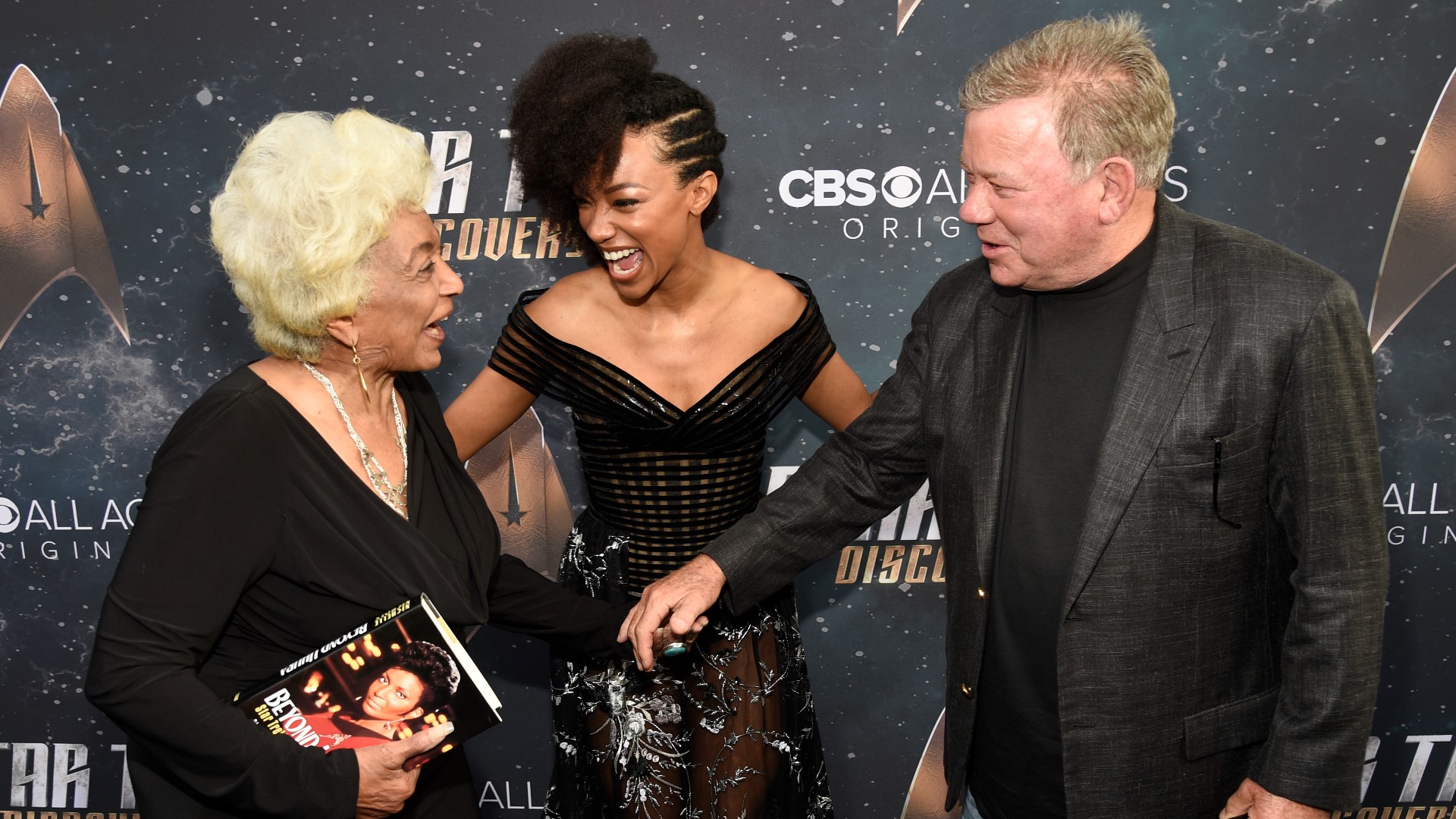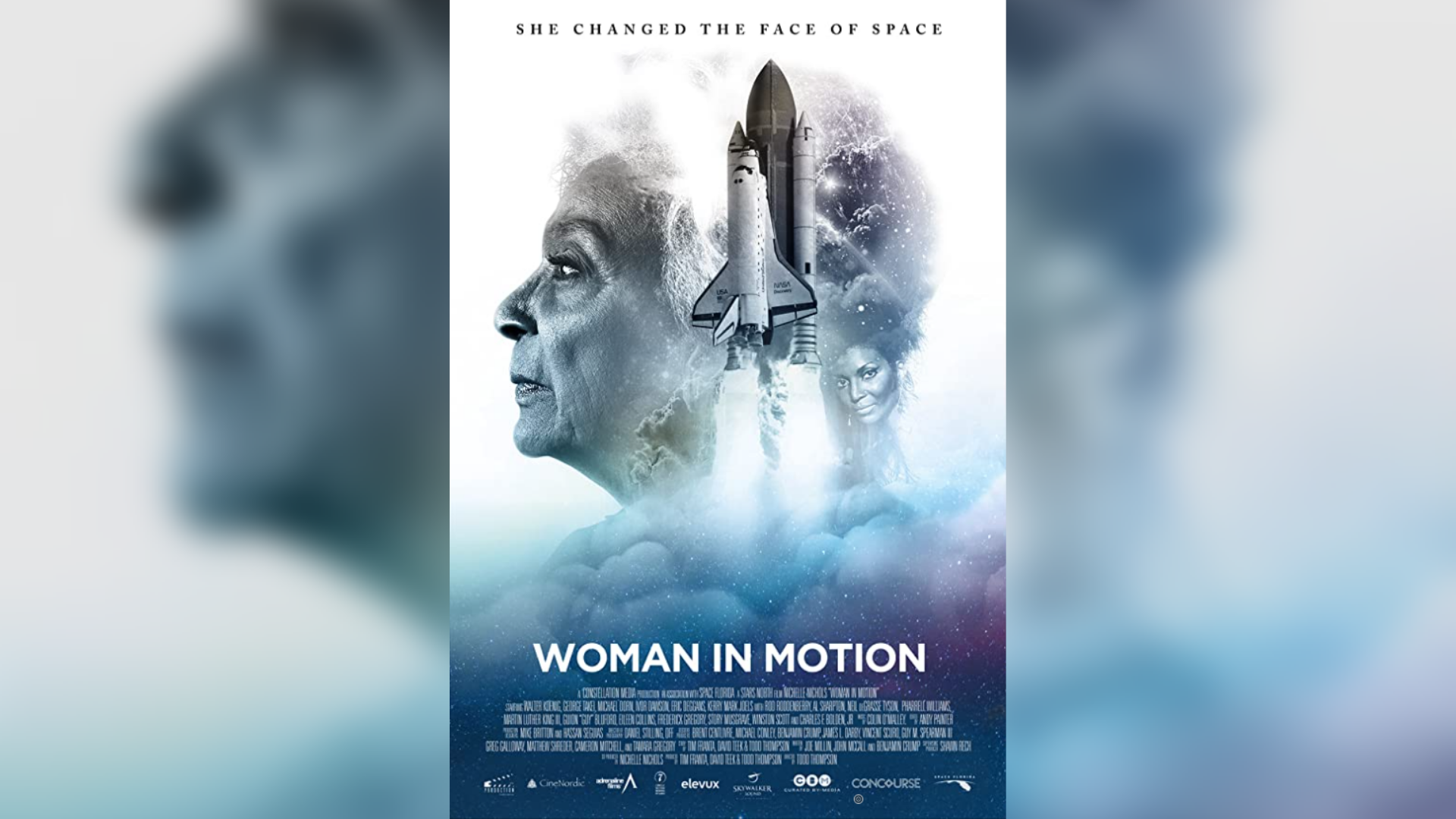William Shatner makes history again, 52 years after Star Trek's interracial kiss
He and Nichelle Nichols were responsible for a monumental moment in TV history.

At 90 years old, William Shatner made history Wednesday.
In a case of life mirroring art, the man famous for his "Star Trek" role as Captain James T. Kirk became the oldest person to blast into outer space.
Making history again
Shatner hitched a ride on the New Shepard rocket of Jeff Bezos-backed space company Blue Origin. It's the company's second suborbital sightseeing flight.
A half-century ago, Shatner made history of another sort when "Star Trek" broadcast the first interracial kiss to American television audiences.
It wasn't a romantic embrace. The 1968 episode is a strange one, with aliens using telekinetic powers to bend the Enterprise crew to their will for entertainment. They make Cpt. Kirk and Lt. Nyota Uhura, played by Nichelle Nichols, kiss.
But, the moment represented something bigger than the episode. It aired just one year after the U.S. Supreme Court struck down state laws that banned interracial marriage.
As Smithsonian Magazine writes, a Gallup poll at the time showed fewer than 20 percent of Americans approved of interracial relationships back then.
Concerned about reaction from TV stations in the South, the Associated Press says the showrunners wanted to film a second version of the kiss where it happened off the screen.
That's where Nichols and Shatner staged their own silent protest.
As Nichols explains in an interview with the Television Academy Foundation, Shatner convinced the crew to film the kiss first, knowing the production day was nearing its end. They filmed the kiss, with Shatner making sure the multiple takes took as much time as possible.
When they finally went to film the version without the kiss, Shatner crossed his eyes and intentionally flubbed the scene in a way that forced the studio to use the original take that showed the kiss.
The episode aired across the nation, without backlash. In fact, to the studio's surprise, the episode got more fan mail than any episode had received before.
Nichols almost quit
As Nichols recounted in an interview, she thought about quitting "Star Trek" after its first season when she was offered a gig in a Broadway-bound play. She went as far as to hand creator Gene Roddenberry her resignation letter.
Roddenberry pleaded with Nichols to stay, urging her to think deeper about the decision.
As fate would have it, she soon ran into a fan at an event. That fan was none other than Dr. Martin Luther King Jr.
Dr. King told Nichols she couldn't leave the show, explaining how crucial her role was in how women and Black people were seen.
"For the first time on television, we will be seen as we should be seen everyday, as intelligent, quality, beautiful people...who can go into space, who can be lawyers, who can be teachers, who can be professors," she recalled him saying.
"Gene Roddenberry has opened a door for the world to see us. If you leave, that door can be closed," Nichols added.
Inspiring astronauts
That conversation changed her life. She stayed with "Star Trek." But, it had an impact well beyond the show's conclusion.
As USA TODAY explains, Nichols was appointed to the National Space Institute's board of directors in 1977 and used her consulting firm to diversify NASA's astronaut recruits.
"In just four months, Nichols was credited with bringing in more than 8,000 applications, of which more than 1,600 were women and more than 1,000 were people of color," USA TODAY's Felecia Wellington Radel writes.
Radel adds that history-making astronauts hired as a direct result of Nichols' recruitment campaign included Dr. Sally Ride, the first American woman in space, and Guion Stewart Bluford Jr., the first African American in space.
The ripple effect of Nichols' efforts with diversity recruitment in space exploration would eventually lead to Mae Jemison being the first Black woman in space.
A year after her historic space flight, Jemison went on to guest star in an episode of "Star Trek: The Next Generation."
The Associated Press contributed to this report.


